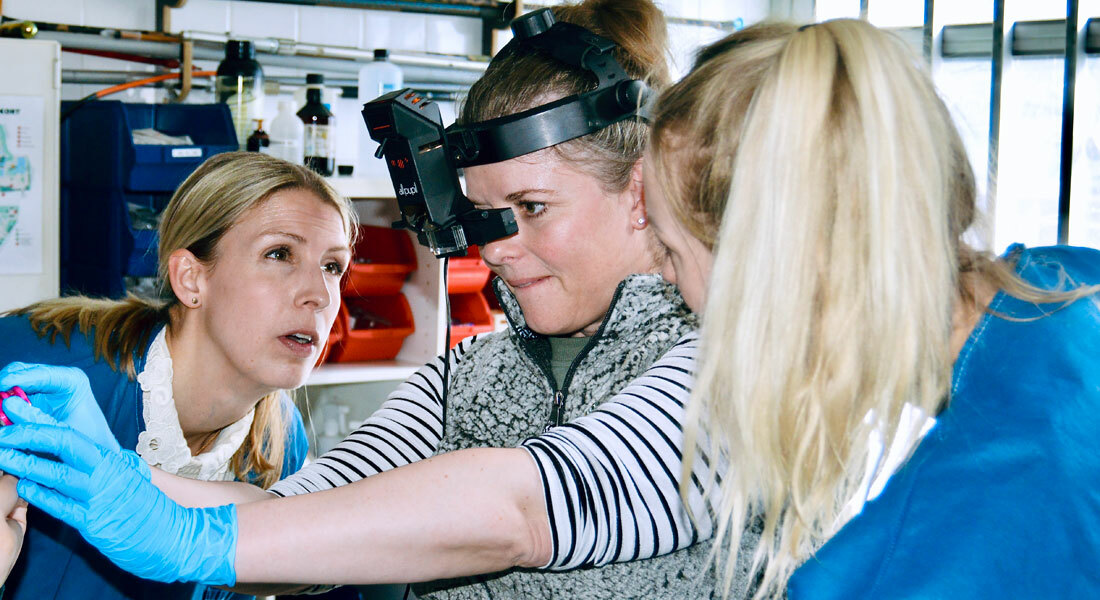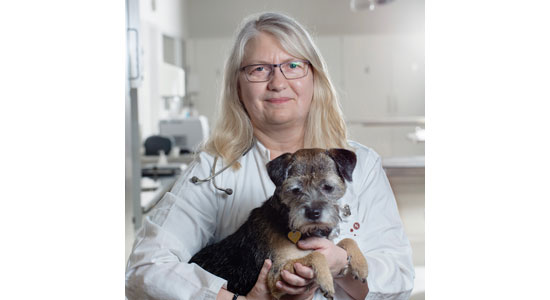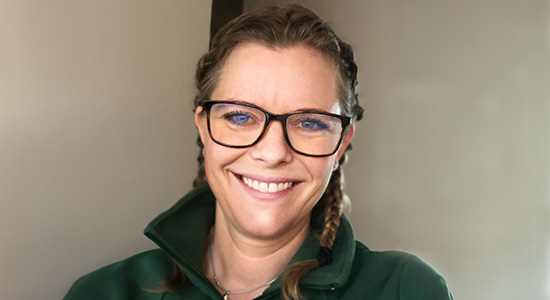Click here to read the curriculum in the course catalogue.
Course code: SCAM25053U

The purpose of this course is:
Read more about the specialisation tracks and the Master's programme on the main page:

Annemarie Thuri KristensenProfessor |

Michala de Linde HenriksenDVM, PhD, Dipl. ACVO |
2026:
13–17 April 2026
2028:
18–22 April 2028*
*The course runs Tuesday to Saturday as Monday, the 17th, is a national holiday.
The course is available every other year.
Please find dates and details about the exam in the exam schedule.
On completion of the course, you will be able to:
Explain, reflect about and demonstrate overview of the systematic approach to the patient with adnexal diseases.
Explain, reflect about and demonstrate overview of the systematic approach to the patient with symptoms of anterior segment diseases.
Explain, reflect about and demonstrate overview of the systematic approach to the patient with symptoms of posterior segment diseases.
Know aetiology, diagnosis, treatment and prognosis of adnexal, anterior-, and posterior segment diseases in dogs and cats at an advanced level.
To define, identify and evaluate veterinary methodology and the use of general and advanced veterinary diagnostic methods for veterinary ophthalmology patients.
Apply evidence based approaches to dogs and cats with complex ophthalmic symptoms.
Perform oral presentation of patient history, symptoms and diagnostic plan for both specialist and non-specialist colleagues and clients.
Discuss relevant problems and questions within the systematic approach to patients with complex ophthalmic symptoms.
Use and adjust slit lamp biomicroscopy.
Use and adjust headset for indirect ophthalmoscopy.
Perform ocular ultrasonographic examination at a basic level.
Interpret, assess, and reflect on collected patient data in order to identify/localize the cause of ocular disease occurrence, make clinical decisions, arrive at a diagnosis and apply and integrate evidence based scientific approaches to plan and administer further diagnostics, patient therapy and management.
Collaborate and communicate within and between specialist and non-specialist peers and lay persons involved in companion animal patient management.
Plan, evaluate and manage a diagnostic work-up and treatment of patients with complex ocular diseases.
Independently obtain, evaluate and elaborate on evidence based new knowledge at a specialty level within complex ocular diseases.
You must meet the following criteria to be admitted to this course:
Read more about admission on the main page of Master of Companion Animal Clinical Science.
Single course student: 36,500 DKK
Master student: 33,000 DKK
Single course student: 40,740 DKK
Master student: 37,240 DKK
Tuition fees include course materials, lunch and coffee. Books are not included in the tuition fees and must be purchased by the participants.
Citizens of the EU, EEA or Switzerland is entitled to a subsidised tuition fee, due to EU legislation, hence the difference in price.
University of Copenhagen
University Hospital for Companion Animals
Dyrlægevej 16
1958 Frederiksberg
Denmark
Christine Gulstad
Study Administration Officer
lifelonglearning@adm.ku.dk
Tlf: +45 35 32 12 73